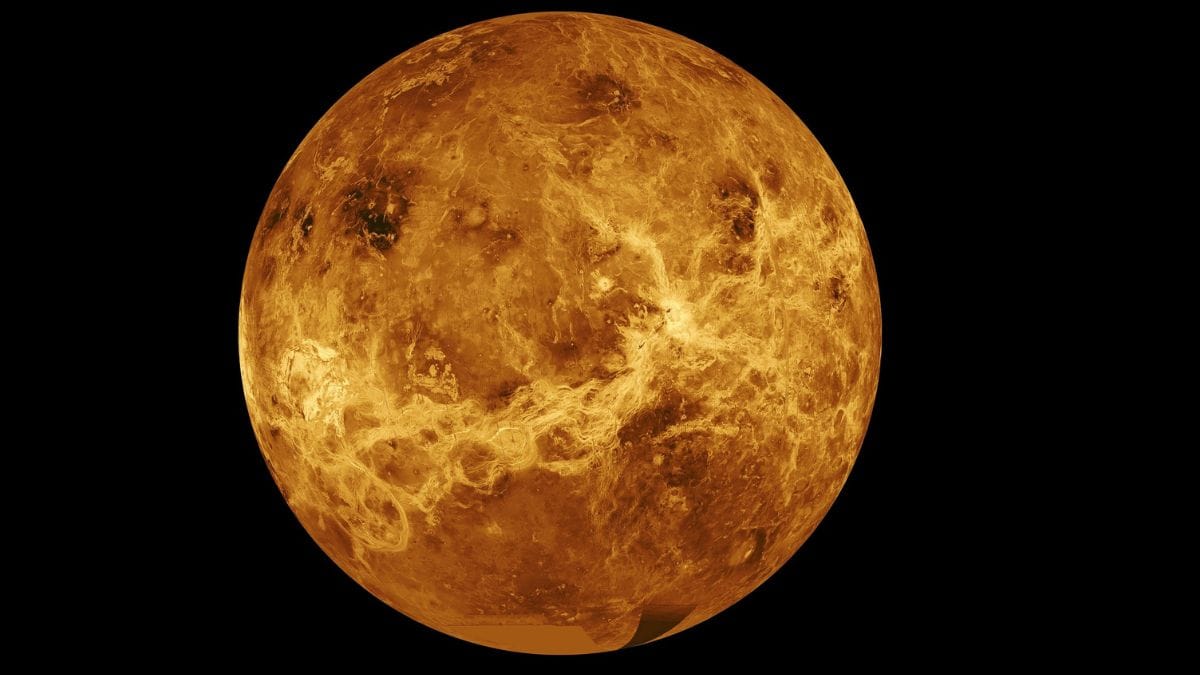A recent study published in Nature Astronomy has concluded that Venus likely never had oceans or conditions conducive to life. The research, led by Tereza Constantinou, a doctoral researcher at the University of Cambridge's Institute of Astronomy, analyzed the planet's atmospheric composition to infer its interior water content. The findings suggest that Venus's interior is substantially dry, supporting the idea that the planet remained parched throughout its history. These findings challenge earlier theories suggesting Venus may have once held liquid water.
Key Indicators of a Dry Interior
As per reports, Venus's atmospheric chemistry was a focal point of the study. Volcanism on Earth releases gases that are more than 60 percent water vapor, reflecting a water-rich mantle. In contrast, volcanic eruptions on Venus emit gases with no more than 6 percent water vapor. This stark difference indicates a dry interior, suggesting that Venus's surface conditions were never capable of sustaining liquid water.
In a statement to Reuters, Constantinou explained that the atmospheric chemistry suggests that volcanic eruptions on Venus release very little water, implying that the planet's interior—the source of volcanism—is equally dry.
Diverging Evolution of Sister Planets
Venus and Earth share many physical similarities, including size and composition. However, their evolutionary trajectories have diverged significantly. As per sources, Venus experiences extreme surface temperatures of approximately 465 degrees Celsius, atmospheric pressure 90 times greater than Earth's, and sulfuric acid clouds in its toxic atmosphere. Constantinou highlighted these contrasts, stating that such conditions underscore the challenges in studying Venus's history of habitability.
Future Exploration Plans
Upcoming missions aim to enhance understanding of Venus. NASA's DAVINCI mission, scheduled for the 2030s, will deploy a descent probe to analyze the planet's atmosphere and surface, as per reports. The European Space Agency's EnVision mission will use radar mapping to explore Venus's surface and atmospheric composition.
These findings provide insight into Venus's inhospitable history, distinguishing it sharply from Mars, which has evidence of ancient oceans and potential subsurface water reservoirs, according to recent studies.


